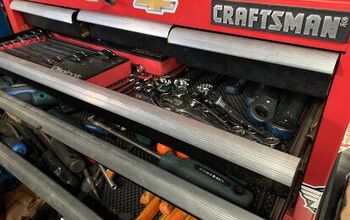Depending on the Automaker, a Border Tax Could Bump Sticker Prices by Thousands

Automakers are waiting with bated breath to see where the pieces land once President Donald Trump complete’s the country’s trade revamp. One proposal would see a border tax of 20 percent placed on goods imported from other countries — a move that would impact the cost of manufacturing vehicles, and buying them.
Not every automaker would see a similar financial hit. Domestic manufacturers that use a high degree of parts built in the U.S., especially those that build few models in Mexico for delivery in the States, wouldn’t see much on an impact. For those that import most or all of their U.S. fleet from foreign factories, the cost per vehicle could be enormous. Customers, of course, would need to make up the difference.
While the tax proposal might come to nothing, a recent study shows what consumers could expect to see on window stickers if the idea becomes policy.
Research company Baum & Associates LLC, which advises automotive suppliers, set out to discover what the tax would mean in terms of an MSRP markup. The study’s findings are not good news for foreign automakers.
According to the study (via Bloomberg), Jaguar Land Rover vehicles would carry an average price premium of $17,000 per vehicle. For Volvo, the increased costs means buyers would shell out an extra $7,600 clams, on average, while Volkswagen aficionados would need to fork over $5,800 more.
Mitsubishi, which doesn’t have the U.S. manufacturing presence of its Japanese rivals, would see prices increase by just under $6,000. Mazda stands to add an average of just over $5,000. Meanwhile, both BMW and Mercedes-Benz flirt with the $4,000 mark. For many manufacturers, the only way to stay afloat will be to bring manufacturing stateside, which is exactly what Trump wants.
“The border tax approach will otherwise consume all of their profits from selling vehicles here,” the report states.
What about domestic automakers, you ask? Well, Ford comes out on top in this case — at least out of mainstream manufacturers. A border tax would add just $282, on average, to its vehicles. Rival General Motors stays in the three-figure range with $995, while the markup on Fiat Chrysler Automobiles vehicles would be just over $1,000. Tesla, on the other hand, builds all of its domestically sold vehicles in the U.S., placing it at the bottom of the list for price inflation.
According to a similar study by UBS Securities LLC, average vehicles prices in the U.S. could rise by 8 percent, or $2,500 per vehicle. Analyst Colin Langan told Automotive News annual industry-wide sales could slide by two million units.
To avoid saddling buyers of new vehicles with unreasonable costs, automakers could choose to return more of its America-bound production from south of the border, thus reserving Mexican production capacity for non-U.S. markets.

More by Steph Willems
Latest Car Reviews
Read moreLatest Product Reviews
Read moreRecent Comments
- Master Baiter Mass adoption of EVs will require:[list=1][*]400 miles of legitimate range at 80 MPH at 100°F with the AC on, or at -10°F with the cabin heated to 72°F. [/*][*]Wide availability of 500+ kW fast chargers that are working and available even on busy holidays, along interstates where people drive on road trips. [/*][*]Wide availability of level 2 chargers at apartments and on-street in urban settings where people park on the street. [/*][*]Comparable purchase price to ICE vehicle. [/*][/list=1]
- Master Baiter Another bro-dozer soon to be terrorizing suburban streets near you...
- Wolfwagen NO. Im not looking to own an EV until:1. Charge times from 25% - 100% are equal to what it takes to fill up an ICE vehicle and 2. until the USA proves we have enough power supply so as not to risk the entire grid going down when millions of people come home from work and plug their vehicles in the middle of a heat wave with feel-like temps over 100.
- Kwik_Shift_Pro4X Where's the mpg?
- Grg These days, it is not only EVs that could be more affordable. All cars are becoming less affordable.When you look at the complexity of ICE cars vs EVs, you cannot help. but wonder if affordability will flip to EVs?


































Comments
Join the conversation
Time for a history lesson. Back in 1950, ninety percent of TV's, cars, beds, clothes, furniture, tires, household goods, were made in the U.S.A. What changed? Nixon opened the door to China, flooding America with cheap goods. NAFTA allowed U.S. carmakers to move to Mexico where they pay $3.50 an hour. Instead of the "rising tide raising all boats" the tide dragged down everyone else to the level of Third World nations, which have no pollution controls and use child labour. So, a tariff is no more than a "pollution and slave labour" charge on countries which have gotten a free ride for the last free decades. Don't blame trump. Blame the Chinese and Walmart, who caused all production to move overseas.
What Thumpers need to realize is that there is already a precedent for systematic discrimination according to percentage of favored/disfavored origin that was long used by America's original Deplorables: en.wikipedia.org/wiki/Hypodescent "So, is that Cruze an octoroon or just a quadroon?"